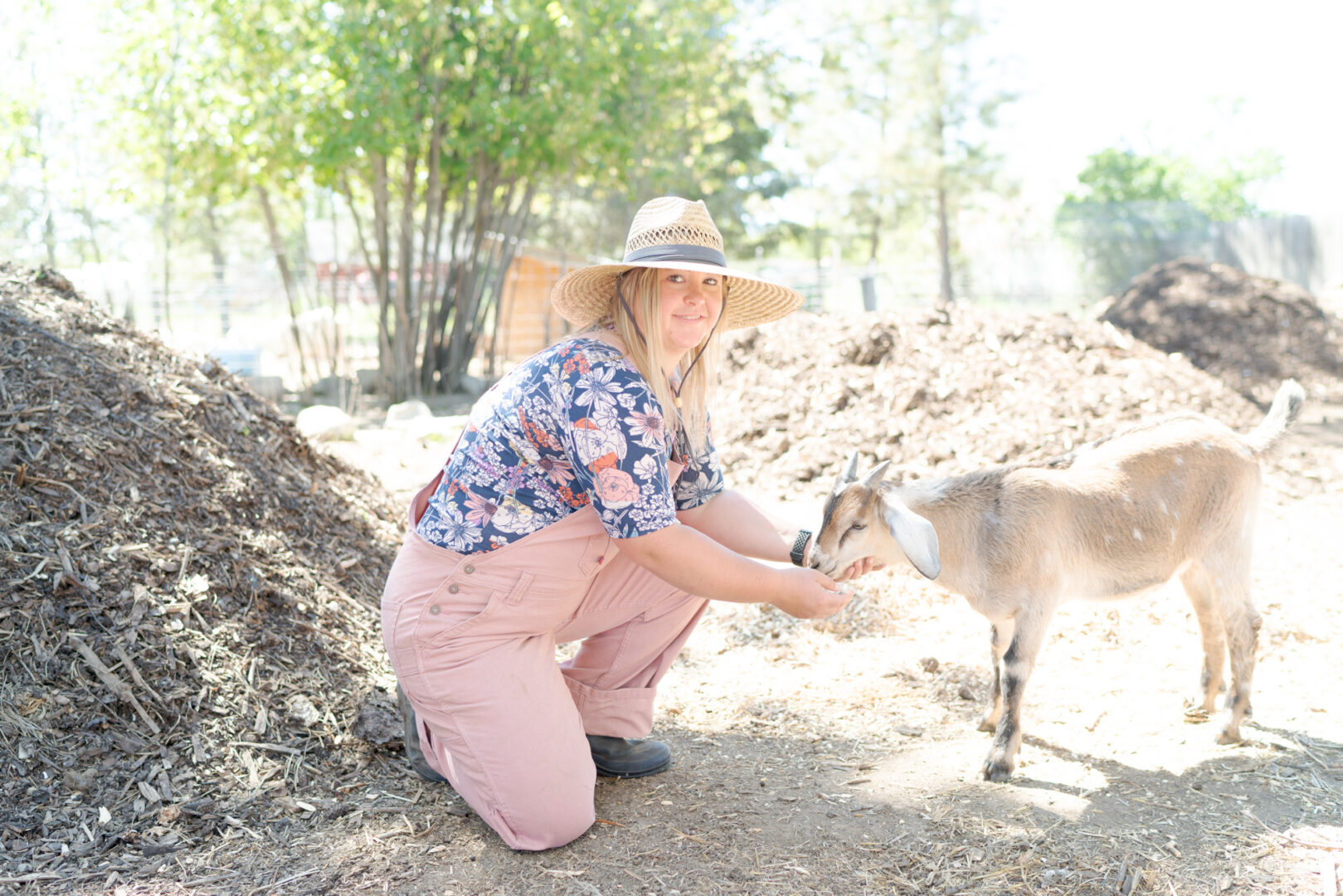We caught up with the brilliant and insightful Elizabeth (liz) Turner a few weeks ago and have shared our conversation below.
Elizabeth (Liz), thanks so much for taking the time to share your insights and lessons with us today. We’re particularly interested in hearing about how you became such a resilient person. Where do you get your resilience from?
When faced with infertility challenges and two rounds of failed IVF, I knew if I kept trying, I would lose myself, my marriage, and my hope. So we took a year off to just live life, strengthen my marriage, buy two-pack goats, start to laugh again and get back into gardening. I also researched why so many women were struggling to have children, and it all leads back to mass-produced food filled with chemicals, the food lacking vitality that it once had generations ago, and it further leads back to our soil sucks. Farmers use so many chemicals to grow mono-crops and kill other life in the soil. Where if the soil had life, our food and plants would thrive.
Knowing I needed a new purpose, maybe I couldn’t have a baby, but I could start a business to make a better world for all the children. Composting not only helps improve soils with life, but collecting food scraps for composting instead of sending them to a landfill decreases greenhouse gases released and even draws CO2 down to the soil, helping fight against climate change. will all that knowledge I had my drive back.
Composting businesses are slowly growing as a woman’s career I would have never known this until I was in my 30s. my hope is not only to continue teaching composting practices and their importance to young minds but to tell little girls playing in the dirt that they don’t have to go out of style.
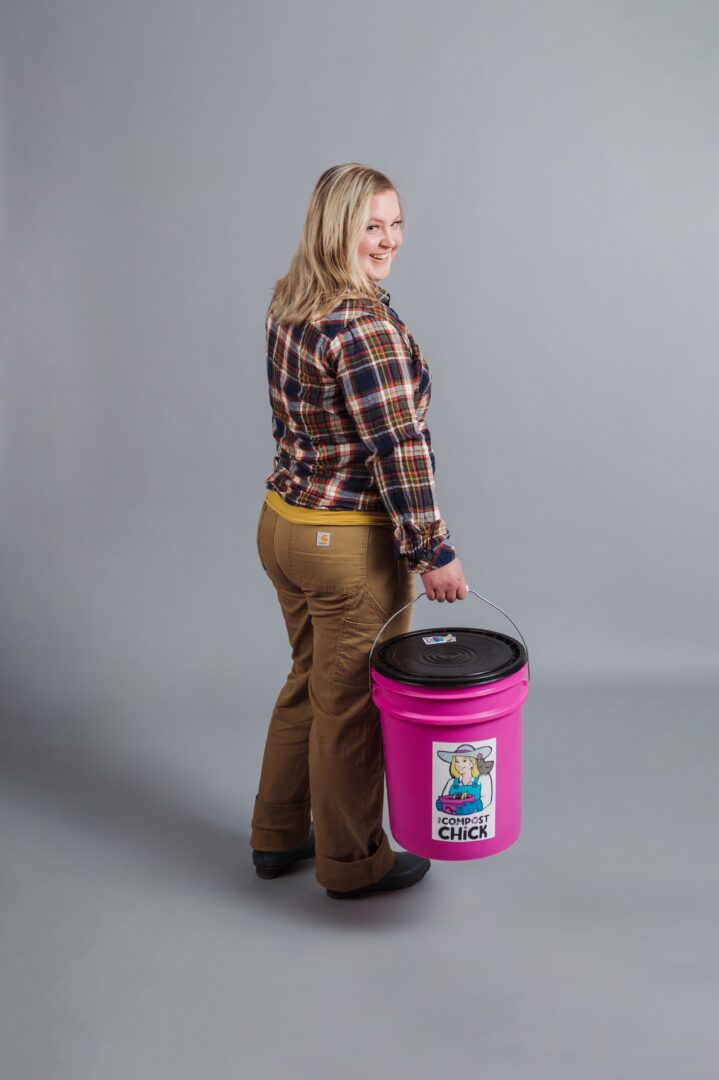
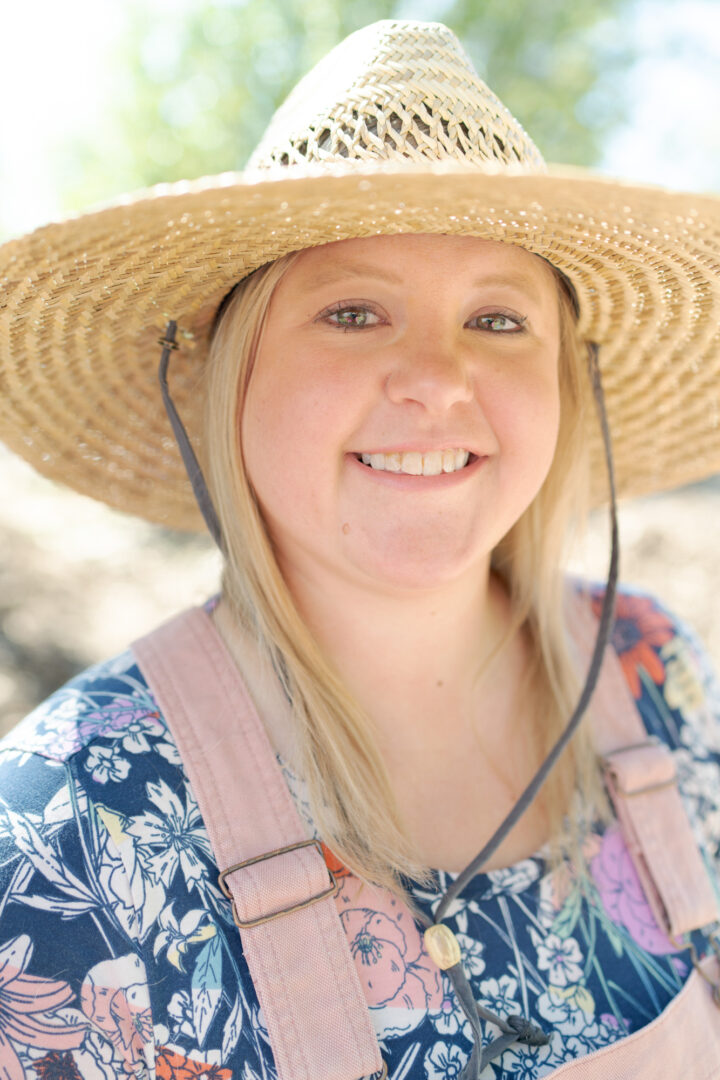
Thanks for sharing that. So, before we get any further into our conversation, can you tell our readers a bit about yourself and what you’re working on?
I grew up in a small town in Eastern Oregon, loving the outdoors and working with my hands. I always remember having a garden and my grandparents having a small farm. Going to my grandpa’s house, picking ears of corn, and eating them an hour later for dinner was the best corn I had ever tasted.
Store-bought produce never tasted as good as fresh apples, peas, raspberries, tomatoes, and corn from grandpa’s house.
In my 20s, I did not have space to grow a garden, but I missed it and longed for it. When I had space to garden again, my first garden with my husband was amazing, the second year, it was ok. It wasn’t until I struggled with infertility that I began to realize that our food conventionally lacked so much nutrition compared to past generations. And our food lacks nutrition because our soils have been degraded yearly. Soils are treated over and over with synthetic fertilizers similar to throwing antibiotics at illness and killing the good bacteria in our guts.
I wondered, how can we solve this problem? Solution: Composting food scraps. Everyone has food scraps or leftovers and not only does composing help improve soil, but it also combats climate change by sequestering CO2 into the soil instead of creating methane in the landfill when it lacks oxygen.
So, I started small and researched like crazy. I started composting our home scraps with the help of our chickens eating meat and cheese, our goats eating some of the veggies and bread, and composting the rest by mixing leaves, goat and chicken bedding, and woodchips. I started asking my co-workers for their food scraps in exchange for less expensive free-range eggs. Then, more and more of my co-workers wanted in on the composting experience.
I put my old marketing degree to use with the help of a high school friend who is an illustrator, and we created my logo and name, The Compost Chick. In February 2023, I made an LLC. I started an Instagram to share composting tips and start the business, so if you don’t have time to compost, you have an option for me to do it for you, and you get finished compost back in the warm months of the year. The business was slow the first 6 months, but then I hit 30 members, and I slowly started dropping down on my hours at my day job as a Physical Therapy Assistant. Now 2 years in I am at 100 accounts, including our local college and several restaurants.
I am now full-time at The Compost Chick with a few part-time employees, and this spring, I am expanding to a few acres to expand the business even more. It’s funny how International Compost Week is the same week as my birthday in May; maybe it’s a sign I have found my passion career in life.
I also focus on educating the next generation about composting for all ages, especially the younger generation, so they can continue climate action for a better future.
It is also just so fun to wake up each day and work with my two yellow labs, several goats, and a flock of chickens outside, Much more rewarding than sitting in an office for 8 hours a day. My days might be longer than they used to be, but building something that no one can take away from me and creating something for the next generation is
beyond thrilling.
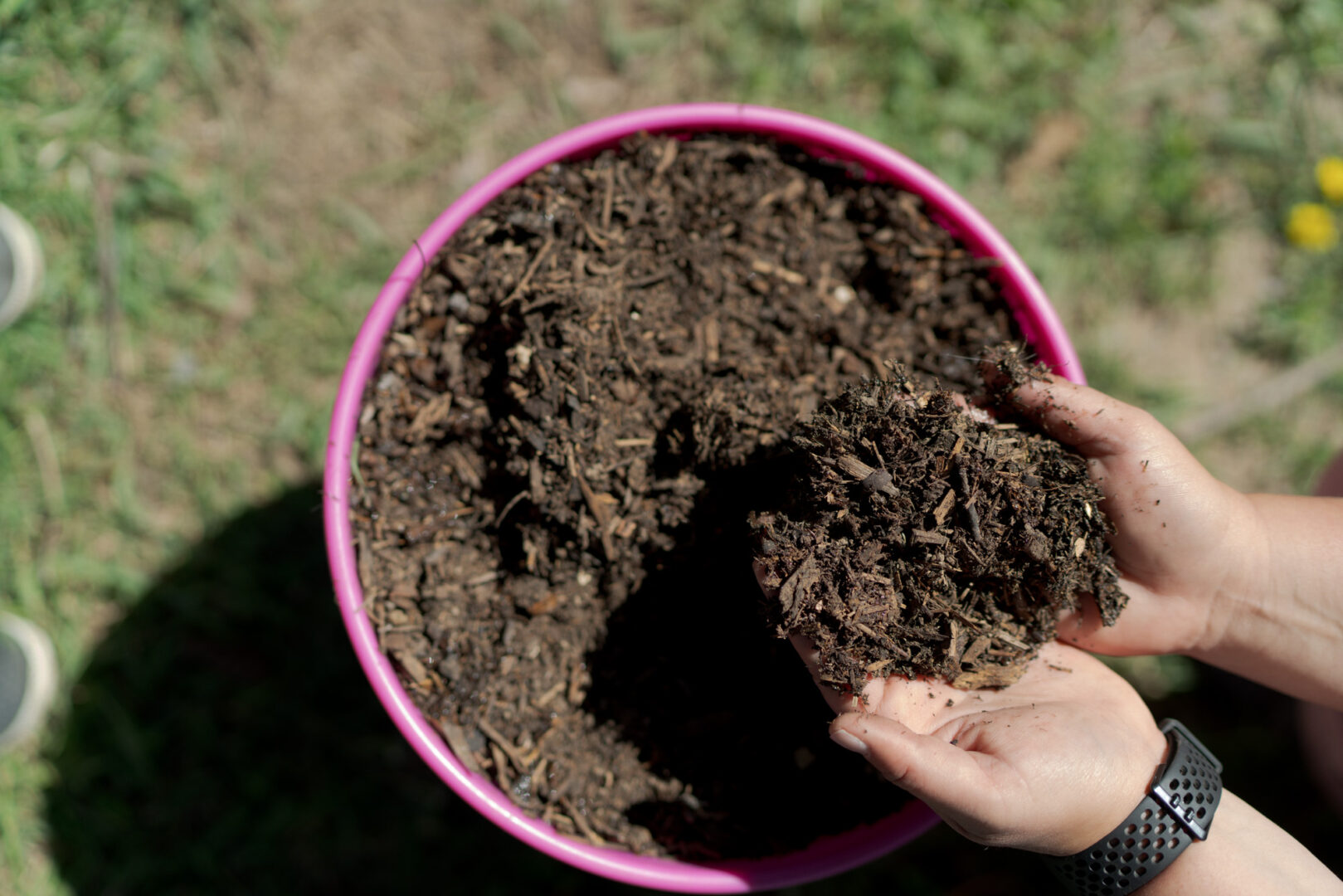
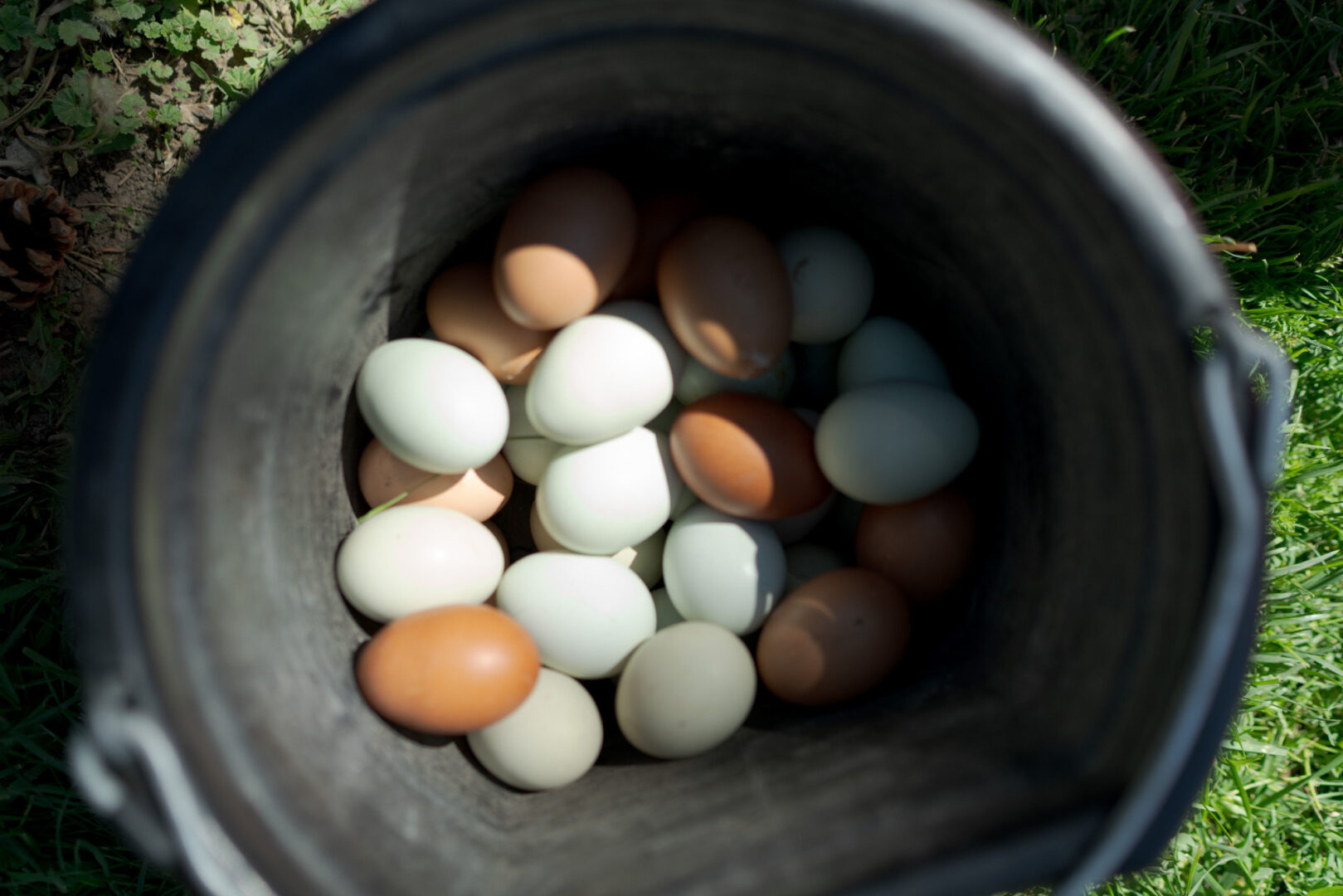
There is so much advice out there about all the different skills and qualities folks need to develop in order to succeed in today’s highly competitive environment and often it can feel overwhelming. So, if we had to break it down to just the three that matter most, which three skills or qualities would you focus on?
I have always been told I can talk to anyone and find common ground with anyone, which made me a great banker and Physical therapy Assistant, It helps me with sales to prospective customers and selling finished compost at Farmer’s Markets.
I have come from a line of really hard-working individuals on my dad’s side. My grandpa Gene owned several businesses, so a lot of my entrepreneurship, I hope, comes from him, he came a long way from a poor kid born in the great depression. He told me he quit a good job at the local mill twice and knew he wanted to own his own business, so from a car service station to a lumber yard, later selling Polaris equipment, he carved his own path. My Aunt Lynda was a school principal for years when that was a “man’s” job. My dad was a top machinist his whole life, working long hours but being the guy who could make anything, even his own left-handed golf putter.
Consistency to my goals, whether it be competing in bodybuilding or starting my own company, consistently sets the groundwork for the end goal even on the days I don’t want to wash buckets or bins in a snowstorm, it still has to get done. And if you tell me I can’t do something, I tend to do it twice and take a picture. It might be that I am just really bullheaded, and if I have a goal, I put my tunnel vision on, and that goal is all that matters.
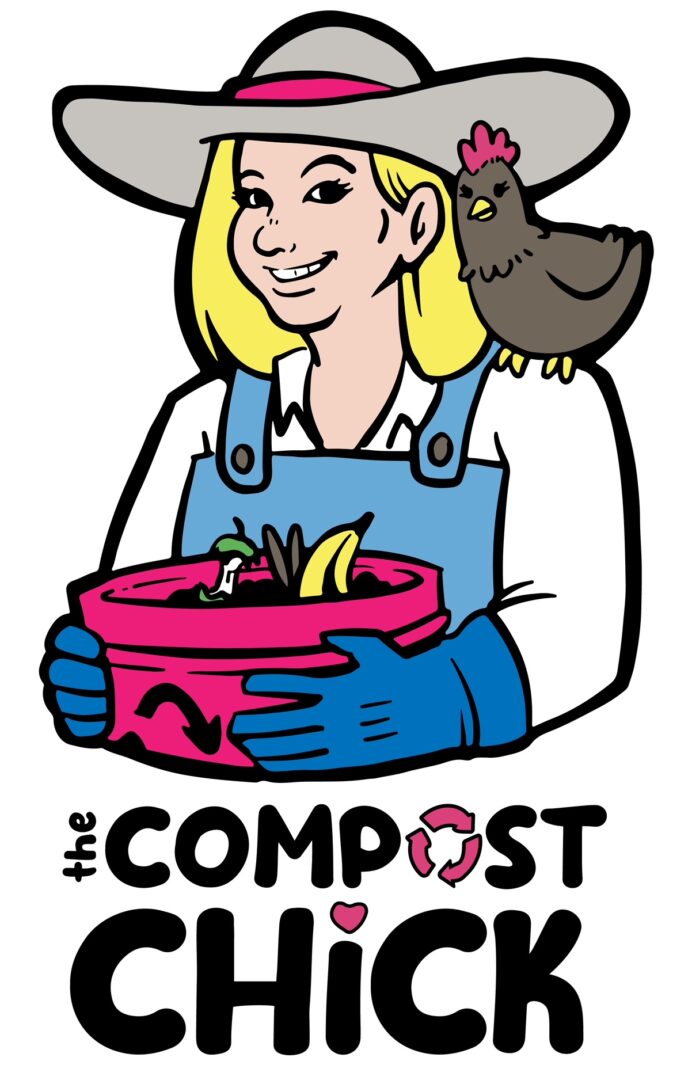
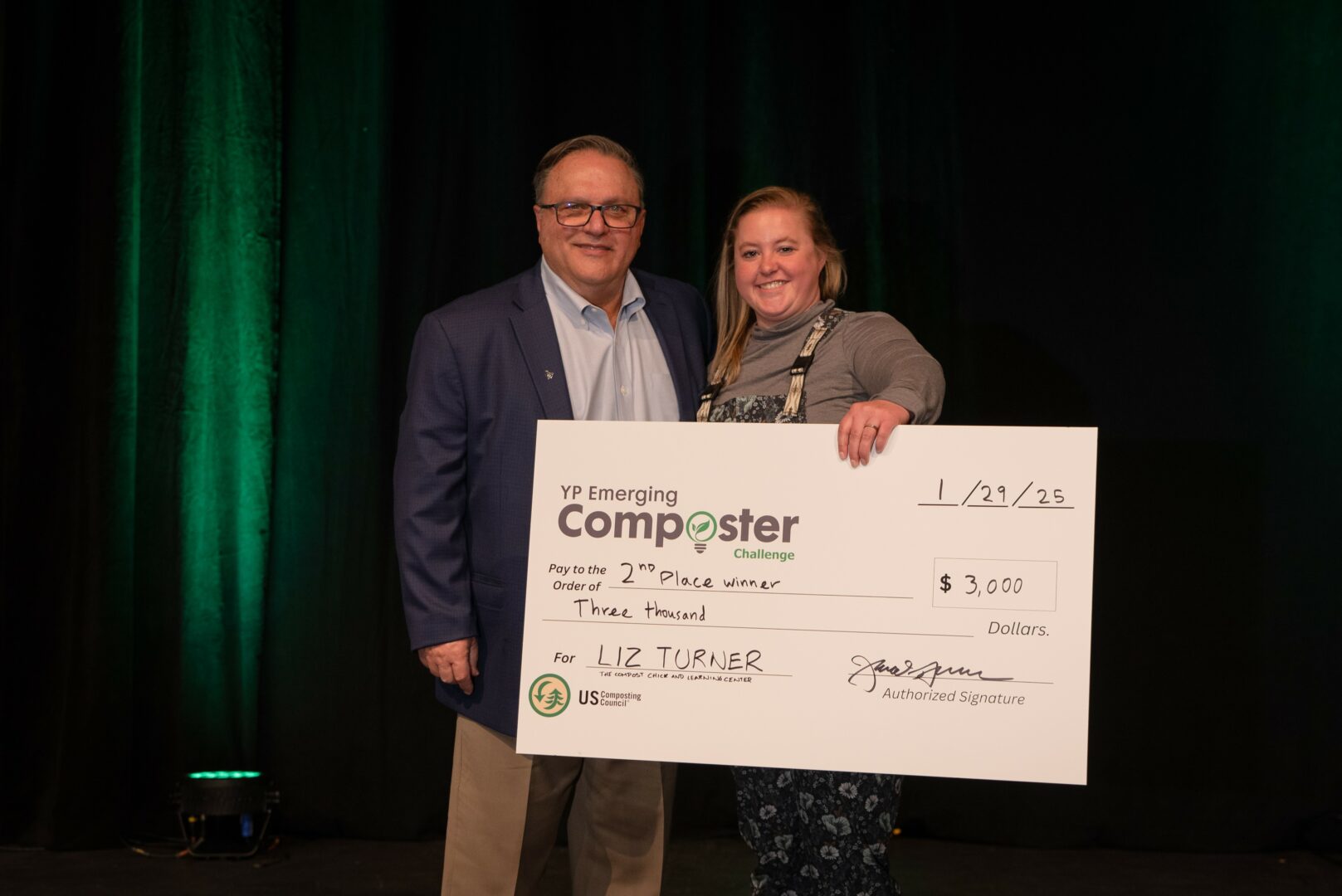
Looking back over the past 12 months or so, what do you think has been your biggest area of improvement or growth?
I would say confidence. starting a business is hard and has a lot of challenges over and over, but the more challenges you face and overcome the more confident you are for the next challenge.
I used to be really shy and thought that I didn’t add value in certain rooms, and as I have gotten older, I just realized I wasn’t in the right rooms. That I have value in my field even as an emerging composter. I now feel confident walking into a bank, a farm equipment store, or a car lot and asking for what I need. I also just want girls to know that playing in the dirt doesn’t have to end, there are so many amazing women in composting and we are all so supportive of one another.
Contact Info:
- Website: https://thecompostchick.com
- Instagram: @thecompostchick
- Facebook: https://facebook.com/thecompostchick
- Linkedin: Elizabeth Turner
- Youtube: https://youtube.com/@thecompostchick
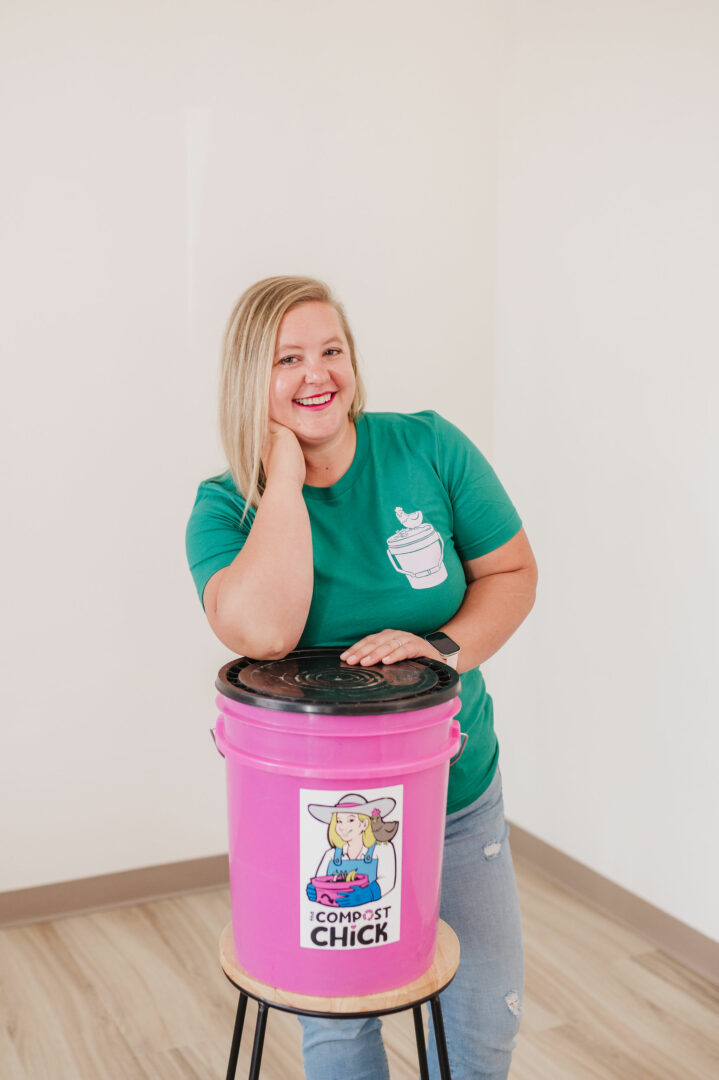
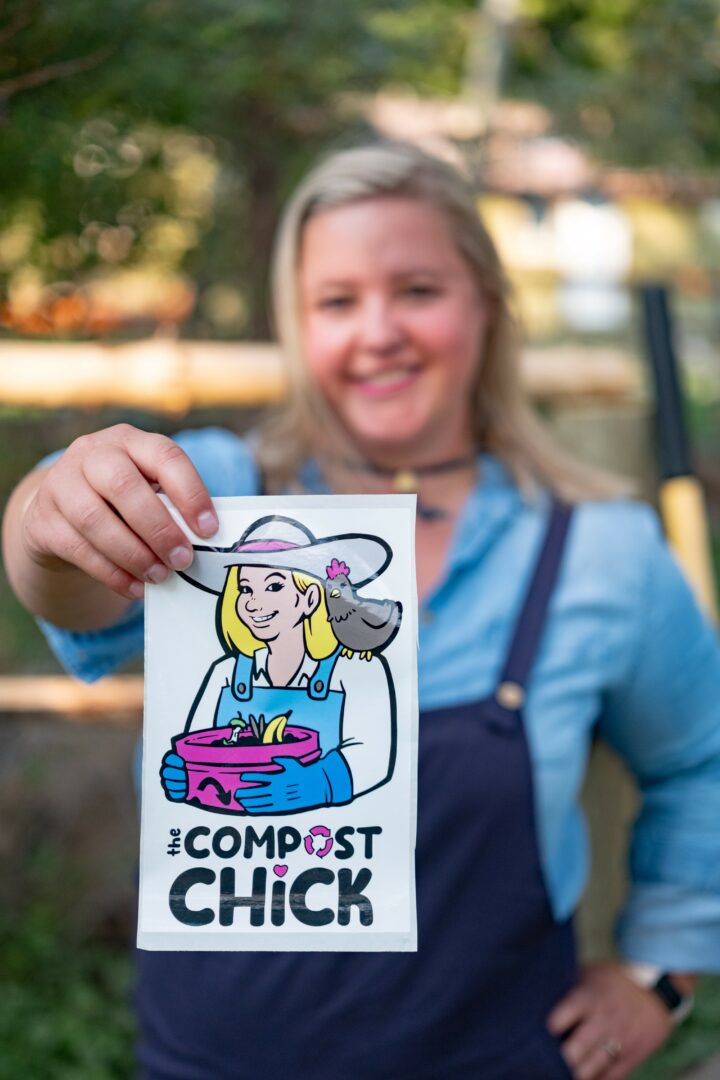
Image Credits
Robin Jolin and Abby Stonebrekater
so if you or someone you know deserves recognition please let us know here.

